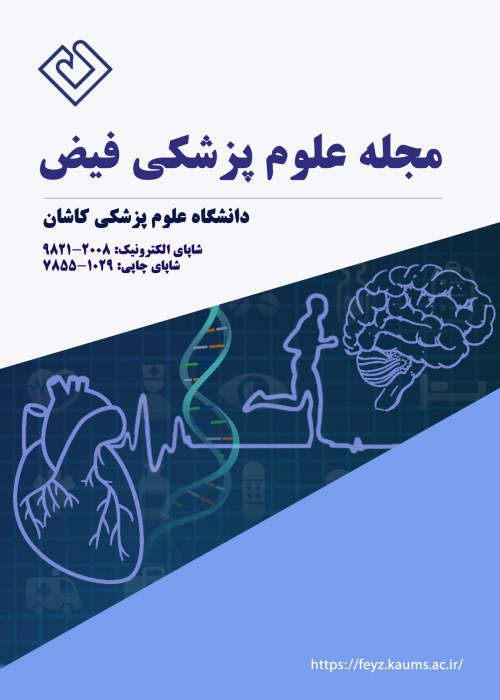Risk factors for antibacterial resistance of isolates producing extended-epectrum β-Lactamase in Gram Negative Bacilli of hospitalized neonates in Shahid Beheshti hospital
Author(s):
Abstract:
Background
The occurrence of isolates producing extended-spectrum β-lactamase (ESBL) has increased worldwide. Gram-negative bacilli producing the extended-spectrum β-lactamase (ESBL) are responsible for resistance against oxy-imino beta-lactames and monobactams, and may be considered as the major pathogens in the neonatal intensive care units (NICU). The purpose of this study was to determine the rate of beta-lactam antibiotic resistance in fecal flora of newborns and the risk factors leading to their colonization.Materials And Methods
This descriptive study was carried out on 167 hospitalized newborns in Shahid Beheshti Hospital in Kashan in 2006. The fecal isolated gram-negative bacilli were prepared using standard tests. The pattern of sensitivity to antibiotics and the ESBL production was investigated on isolates with the criteria suggested by Clinical Laboratory Standards Institutes (CLSI). Data were analyzed statistically by Fischer’s exact and Chi square tests.Results
Colonization of fecal flora with gram-negative microorganisms was determined in 120 stool samples. Klebsiella pneumonia, Escherichia coli, and microorganisms producing ESBL were identified in 53 (44.2%), 34 (28.3 %), and 35 (29.2%), respectively. 65.7% (23 out of 35) of microorganisms producing ESBL were K.pneumoniae. Risk factors for colonization of gram negative bacilli producing ESBL were birth weight ≤ 2500gr. (P<0.00008), any antibiotic usage in infants (P<0.0001), preterm neonates (P<0.00013), total parenteral feeding (P<0.0007), administration of ampicillin (P<0.0017), respiratory disease (P<0.0037), ventilator support (P<0.0076), duration of hospitalization >7 days (P<0.0082), administration of cefotaxime (P<0.0247), and C-section delivery (P<0.048).Conclusion
To decrease the morbidity and mortality rates following the infection caused by ESBLs colonized in the intestine of infants, protection of normal non-pathogenic bacterial flora is important. This can be provided by the efficient application of infection control measures, and limitation of antibiotic usage to strict clinical indications.Language:
Persian
Published:
Feyz, Volume:11 Issue: 4, 2008
Page:
24
magiran.com/p517828
دانلود و مطالعه متن این مقاله با یکی از روشهای زیر امکان پذیر است:
اشتراک شخصی
با عضویت و پرداخت آنلاین حق اشتراک یکساله به مبلغ 1,390,000ريال میتوانید 70 عنوان مطلب دانلود کنید!
اشتراک سازمانی
به کتابخانه دانشگاه یا محل کار خود پیشنهاد کنید تا اشتراک سازمانی این پایگاه را برای دسترسی نامحدود همه کاربران به متن مطالب تهیه نمایند!
توجه!
- حق عضویت دریافتی صرف حمایت از نشریات عضو و نگهداری، تکمیل و توسعه مگیران میشود.
- پرداخت حق اشتراک و دانلود مقالات اجازه بازنشر آن در سایر رسانههای چاپی و دیجیتال را به کاربر نمیدهد.
In order to view content subscription is required
Personal subscription
Subscribe magiran.com for 70 € euros via PayPal and download 70 articles during a year.
Organization subscription
Please contact us to subscribe your university or library for unlimited access!


